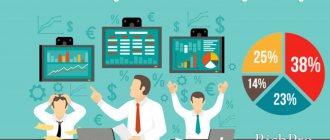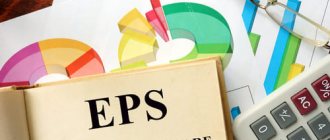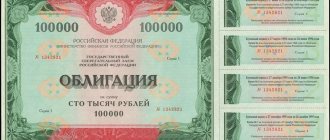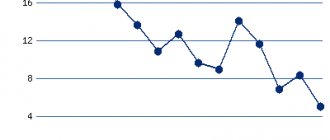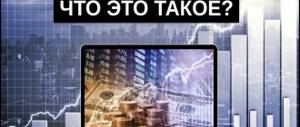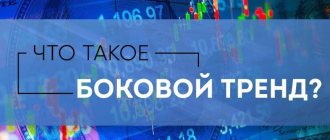Greetings! The other day I enjoyed watching the film “The Wolf of Wall Street” with Leonardo DiCaprio in the title role. I love movies about stock traders. The intensity of passions, a sea of events and emotions, ups and downs - beauty! Agree, compared to the heroes of such films, you and I live a terribly boring life.
Is it possible for a mere mortal to make money on the stock exchange? The answer to this question is not as obvious as it seems. Those who consider the foreign exchange, stock or derivatives markets to be a giant scam are wrong. But those who hope to consistently and easily earn thousands of dollars on the MICEX are also mistaken.
The truth, as usual, lies somewhere in the middle. Let's try to figure it out...
Who is a trader and what does he do?
A trader is an individual who is engaged in the purchase and sale of financial assets on the stock or foreign exchange market personally for himself or on behalf of another person/organization.
The main difference between a trader and an investor is the duration of ownership of the asset. Investors tend to look decades into the future, while traders hold assets for a short time, turning them into speculative instruments.
Where do they sell?
A stock trader can work in a variety of places—at home, in an office, or at a bank counter. Unlike all other white collar workers, such as bank workers or corporate managers, traders work individually. Their markets may open at 7 am, 3 am or 9:30 pm. All you need to go to auction is a PC/mobile gadget and high-speed Internet.
Principle of operation
Traders are constantly looking for new trading opportunities. They spend time analyzing market price charts and reviewing financial statements to identify overvalued and undervalued assets. To make a profit, a trader must take risks. In this regard, the main thing for beginners at the first stage is to learn how to manage capital competently.
Types of trading and traders
Traders are everyone involved in stock exchange or currency trading.
Based on the method of earning money, traders are divided into several types:
- Self-employed. This class of traders trades on the market with their own money (plus the money of family, friends, comrades) or using the capital of their companies (if we are talking about entrepreneurs). This is a marked difference from professional fund managers who trade client funds.
- Traders of management companies and investment funds. Successful traders may be offered work in various financial institutions. They do what they are used to and know how to do - trade, and the employer provides a financial cushion.
- Market makers. This is the name given to traders who work in banks and brokerage houses. Through their activities, they ensure constant liquidity of the securities market. But, in addition to creating a liquid market, market makers also bring profit to their offices.
Based on trading style, there are four main types of forex traders:
- Scalpers. They remain trading on the market from several seconds to several minutes. Their main goal is to capture a very small number of pips at the height of the price movement.
- Day traders (intraday). Trade as you like, but with one condition - the transaction is not postponed to the next day (to avoid the risk of an unexpected reversal).
- Momentum traders (momentum trading). In momentum trading, the trader identifies a stock that is "breaking" and jumps to catch as much of the momentum as possible on the way up or down. The deal is open from several hours to several days.
- Swing traders. They trade on the market from several days to several weeks, preferring to follow strong “long-term” trends.
Is trading a casino or not?
In many ways, the two disciplines are similar. If a trader makes a bunch of trades at random, he will probably lose everything. But there are differences.
For example, a casino does this:
- selects the right business strategy;
- offers games that give him an advantage;
- removes all restrictions except age to encourage a diverse “range” of customers.
At the same time, traders can:
- open only those transactions in the market that give them the greatest benefit relative to the risk;
- select suitable positions so as to reduce losses and increase profits when trading;
- distribute your transactions in such a way that their total return is higher than the risk.
Moreover, casinos are about excitement, and the best traders show absolutely no emotion when trading regarding profits and losses. Only dry calculation and healthy pragmatism.
Advantages and disadvantages
Advantages of trading:
- Participation in market growth. The first advantage of a trader is that he can both speculate and participate in the growth of companies. Nothing prevents him from collecting dividends and then selling the shares profitably.
- A very liquid form of investment. This all happened before long and difficult. Today you can trade in the morning and receive money in your bank account by lunchtime.
- Reliability. The modern stock exchange is a relatively safe place to trade. There will be no problems such as control brake, fake shares, etc. On the exchange, every transaction is standardized and protected.
- Buying and selling is very simple. With the advent of online trading and online brokers, the entire process of participating in the stock markets has become extremely simpler. You can place buy and sell orders from the comfort of your home.
Disadvantages of trading:
- Risk. Stock and foreign exchange markets tend to overreact to news and numbers. This can ruin all plans and lead to an unprofitable closing of the deal.
- Lack of complete information about most companies. There are economic calendars, and then there is its own kitchen, which is rarely seen by outsiders. Therefore, the role of “insiders” in modern trading is still high.
Risks
The main risks of a trader:
- Inflation risk. The risk associated with this factor is that our money will not grow fast enough to cover the costs associated with inflation. Housing, clothing, medical expenses and food are increasing in price every year. By investing in funds that do not keep up with inflation, we are actually losing money.
- Liquidity risk. Not all assets can be easily and quickly sold at their market price. The easier it is to do this, the more liquid the asset. Unfortunately, liquidity can either rise or fall, and an illiquid asset is like a suitcase without a handle—it’s a shame to throw it away and difficult to carry.
- Risk of reversal. This type of risk comes into play whenever there is a break in trading and the transfer of a trade. Sometimes a stock on the market opens at a price significantly higher or lower than its previous close, and the quotes move in the wrong direction. There's nothing you can do; these are common on the market.
Different markets, different standards
Trading currencies has been literally unfashionable for a long time. It is very difficult to understand what exactly was meant by this concept. After all:
- FOREX worked around the clock;
- Monstrous capitals were circulating on FOREX, measured in trillions of US dollars per day;
- in FOREX there were positions that were quite risky, but at the same time volatile and allowing you to make money, and there were also “safe havens”.
But the impetus for the promotion of this money market was given by the participation of J. Soros, who in the early 90s launched an attack on the English pound sterling and reduced its price by half. After this, players in the market arrived, and the efficiency of work on it, accordingly, decreased.
Partly from these times, and partly thanks to the total informatization of the exchange space and its transfer to online, standards of approach to assessing the activities of traders were formed. It became the norm to offer them a mandatory rate of return, which he must generate for the company, and his bonus was formed when this “rental” was exceeded. Moreover, investment companies began to practice this approach in relation to their clients, promising them a certain guaranteed level of return on their investments and taking their own commissions from the excess premium.
In general, this approach seems to be the most fair, dividing between the owner of capital and its operator both the joy of gaining profits and the severity of the risks of possible losses. Drawing on my own experience in asset management, I can share information that I attracted capital under the promise of a guaranteed return of 20% per annum in foreign currency (US dollars). Everything that was possible to earn more ended up in the trader’s pocket.
Appealing to modern financial and legal practice in the vastness of the countries of the former Soviet Union, it is necessary to note the lack of a clear system for the formation and division of profits of investors and managers (traders in the case of working in organized markets). And this is the true face of the domestic exchange infrastructure, which demonstrates the unpreparedness of the legal field to protect the interests of market participants.
Is it really possible to make money as a trader?
Enthusiasts are inspired by the idea of making a living doing nothing but trading on the stock exchange. The idea that you can leave your regular job and go into trading fascinates many, and for some it seems like an incredible fantasy. Is it worth doing? There is no clear answer, and the truth, as always, is somewhere in the middle.
What does income depend on?
How much traders earn is largely determined by:
- Market, which market we trade in. Each market has its own advantages. Stocks are typically the most profitable, but most capital-intensive asset class to trade. By choosing futures or options (which are financial contracts, not binary options), we lower the entry threshold, but earn less. Forex offers high potential profits, but the risks are also high.
- Start-up capital. If we start trading with 2,000 rubles, our potential income is much less than someone who starts with 20,000 rubles.
- The time we spent on our trading education. To create a consistent income from stock trading, you need a solid trading plan and the ability to implement it correctly.
- Attitude to risk. A professional trader usually takes minimal risk on each trade and rarely bets more than one percent of his trading capital on a trade.
Why do most beginning Forex traders lose their deposit?
When we go public, we enter a large interbank business full of professional traders who have honed their skills over years and decades. It is these 5% of large players that “eat up” the money of the remaining 95% of traders.
Previously, it was difficult to enter the market. It took a long time to study and save money to start. Today, thanks to online trading, such an opportunity has appeared, roughly speaking, for any housewife.
And in fact, no one is interested in you becoming a successful trader. It is enough that you have already tried and donated some money to the market. There will be no you, there will be someone second, third, fifth, tenth...
In any case, you will fly past if you:
- trade on the market using “magic” paid indicators and advisors;
- ignore training on a demo account, relying on your luck and intuition;
- forget that trading is complex and hard work;
- open trades without developing a trading strategy and without working on discipline.
Simply put, if you don’t have a correct understanding of money management, there is nothing to do on the stock exchange.
How long does it take to achieve a stable income?
When we start trading, the first question is when will we have enough money to become completely financially independent. Setting realistic trading expectations is important. But if you think you can get rich in a few weeks, prepare to be disappointed. As a rule, years pass before a trickle of money turns into a full-flowing river.
Psychology of Trading
The psychological mood of the trader plays a very important role in the successful completion of the transaction. Among the main taboos that professionals focus on are the following:
- opening a transaction with a large drawdown in the opposite direction;
- performing operations on emotions;
- the desire to recoup “here and now”;
- excess profit as the main goal.
Another mistake is the illusion of a successful transaction, which is transferred to others. Of course, every transaction will not end in positive territory with an indicator of +5, but even 10 or 15%. You must be able to stop successful orders in memory and not transfer them to new ones. Of course, no one will tell you the approximate amount of how much you can earn from trading per month, the specific training period until you start receiving a stable income.
Plus, you can work with a small capital, gradually increasing it, and if you manage to attract investments, then trade without investments at all. This method of investing in websites, which you can read about in the material on www.gq-blog.com, is built on a trust basis and brings a good income. In the portfolio on the blog there are similar projects where private traders manage funds, and we regularly receive profits based on the results of transactions.
To summarize, let me clarify: trading is a stable direction, and if you approach it with “feeling, sense, attitude,” then you can make good money, and most importantly, consistently. You can learn trading skills, but you can only experience the market yourself. While preparing the material, I came across a story on how to earn up to 70% by trading on the Internet, and do it without investment. To be honest, I don’t believe in this and I don’t advise you, the figures are very cosmic: less is better, but for a long time and without problems. I wish traders who are just discovering this direction to achieve heights, and I wish professionals to receive not only financial, but also moral pleasure, excluding emotional burnout.
See also:
- How to make money on a smartphone without investment? TOP real methods and examples
- Paid surveys: get paid just by answering
Author Ganesa K.
A professional investor with 5 years of experience working with various financial instruments, runs his own blog and advises investors. Own effective methods and information support for investments.
How much do traders earn in Russia and abroad?
I will present general data on traders.
Beginners
Since the American market is the fattest, we will compare with it. According to Wall Street statistics, the average income of a novice trader who manages to get into the black starts at about $134,000 per year.
In the Russian Federation, 90% of traders lose their deposit in the first year. Only 10% get out of the diapers and go into the “adult” trade. The difference with their American counterparts is that the work of local brokers is more regulated.
The entry threshold is relatively high (many brokers have a minimum deposit of $10,000 or more), so more or less trained users are suitable for the job. With us - you received a passport, saved on school lunches and you can start investing through the Sberbank or Tinkoff mobile application.
Lovers
Traders in the Russian Federation who have already gained experience and are achieving a stable profit, according to statistics, withdraw to their account in the region of 100–500 thousand rubles per month.
American colleagues who have successfully established themselves in the market receive an average of about 220–225 thousand dollars a year.
Professionals
The earnings of professional traders vary greatly. They can trade for themselves or work for other people or organizations. In particular, a financial specialist in Russia can earn from 100,000 rubles monthly. 10% of Wall Street traders who have reached the rank of pros in trading earn from $300,000 a year.
The mechanism of work on exchange platforms on the Internet
Beginner speculators are advised to work with stocks or futures
, since they have lower commissions. Having trained on simple financial products, you can move on to more serious instruments - options, currencies.
So, the choice of trading type has been made. Let's say this is conducting trading operations with securities. Trading is carried out through an intermediary - a broker, who is entitled to a corresponding commission percentage for his services. In order to choose it, you will need to register in the system and open an account in the name of the broker. Otherwise, access to the exchange will be closed.
The registration process is not complicated - you fill out a form and confirm your identity.
After opening and replenishing the account, permission is issued to enter the exchange. Then open the working interface and begin selecting assets. They try to find a company whose shares are not currently quoted and are sold at a low cost. At the same time, they must be promising so that they can be sold at a higher price in the future.
When choosing a product, traders rely on technical and fundamental forecasts. Here is an example of stock quotes for the quarter of the Avto VAZ company.
The chart shows that the price periodically tends to rise. Therefore the potential exists. So, by buying shares at a bargain price, it is quite possible to get a good profit, provided that the price returns to the levels of a month ago. Considering that AvtoVAZ is planning to launch a new car model on the market soon.
But how do you know in which direction the stock price will move? Here traders resort to different strategies. The following exist:
- scalping - performing multiple financial transactions during one trading session (the time period is usually no more than a minute);
- give-trading – trade with a large interval, but be sure to close all transactions within one session;
- swing trading – transactions are carried out over several days;
- short-term strategy – deals do not close for weeks;
- medium-term strategy – positions are left open for a month or more.
If we focus on investing, the principle of operation will be even simpler. You need to invest a certain amount of money in liquid shares of a certain company and wait for the period to end and the payment of dividends to begin.
Let's consider this option using the example of Gazprom. In 2021, he paid out more than 170 billion rubles. in the form of dividends. Now imagine what kind of profit you can get with even 0.0001% of assets at your disposal.
How to become a trader
To become a professional trader in the market, you first need to learn the basics of trading. A solid understanding of the fundamentals will set the foundation for our entire career. It is necessary to delve into the theory, otherwise there will simply be no understanding of certain processes, and without this, trading repeats itself in blind copying of other people's advice and transactions.
Simply put, if you screw up, you won’t even understand where or how. Therefore, you will not draw the necessary conclusions and will not become more effective.
Studying trading theory should cover:
- overview and comparison of all available markets for trading;
- purchase and sale price and factors of its change;
- types of orders when trading and how to place them;
- Management of risks;
- trading hours;
- capital distribution;
- trading systems and methods.
Along with studying the theory, you need to gain trading experience on a demo account. This way, training will take place as quickly and efficiently as possible.
How much money do you need to start?
There are no hard and fast rules regarding how much money you need to have in your account to start trading. We mainly rely on the broker's requirements. For example, a broker may stipulate that a minimum of $3,000 is required to open an account. There are types of accounts that can be opened for trading with hundreds on deposit.
Market selection
Traders can trade in different markets:
- Stock market. This is the most famous and studied market, which mainly revolves around the buying/selling of stocks and bonds.
- Indices and ETFs. The funds represent all types of sectors, industries, currencies and commodities. Traded similarly to shares.
- Forex market. Global foreign exchange market. Initially created for the easy exchange of one currency for another currency, which opens up excellent prospects for speculation. Very liquid market.
- Options and futures. A market that allows participants to trade not the underlying asset itself, but derivatives on it.
- Contracts for difference (CFDs). A hybrid of the stock, Forex and options markets, which allows participants to place derivative trades of the underlying asset. Typically, CFDs do not have an expiration date or expiration date (like options or futures, for example).
Although there are other markets, these are the most liquid and accessible to trade. Choosing the right market and trading style to match it is the key to success.
Real professionals
So are there profitable traders in Russia? Where do they work and how do they live? Of course, they exist, these people just don’t sell courses on the Internet and don’t make videos on how to make a million in two weeks.
The path of these people was not easy; their work consists of 90% of the time analyzing the situation, studying the news and searching for profitable assets.
Live in Moscow:
- Gerchik Alexander Mikhailovich, 17 years of experience, managing director of Finam Management;
- Ponizovsky Evgeniy, 25 years of experience, chief analyst at Alpari;
- Belousov Evgeniy, work experience 9 years, place of work United Traders.
I have not given the entire list of successful names.
Choosing a broker
When choosing a broker, I pay attention to the following points:
- Costs and commissions. It is important to know exactly the costs of placing orders and withdrawing funds. These are costs that may make ongoing cooperation with a broker not as profitable as initially expected.
- Trading instruments. For successful online trading, you cannot do without a convenient modern working platform and analysis tools. The more advanced functionality a broker provides, the easier it is for us to predict price movements and open profitable trades when trading.
- Reliability and safety. The broker must not only regularly pay what he earns, but also jealously guard our personal data and protect the account from theft.
For the rest, you can rely on “live” ratings of real users, which can be collected on thematic resources.
Rating of the best and reliable brokers for beginner traders
In fact, there are many criteria by which you can evaluate brokers; each time the rating will be different. Therefore, I propose to determine the top ten by selecting brokers based on the size of their client base. If a lot of people trade with them and the number of clients increases, it means they know how to attract a newcomer and know how to keep him.
Therefore, my 2021 rating includes:
- Sberbank;
- Tinkoff Bank;
- VTB;
- BKS;
- Finam;
- FC Otkritie Group;
- Alfa Bank;
- Alfa Capital;
- Promsyazbank;
- Bank GPB.
If you have your own experience of trading in the Russian Federation with domestic brokers, please share it in the comments.
Trading Basics
First, let's find out what stock trading is in general.
This is not pure investing. It is primarily a process of buying and selling to make money on price differences. Investors typically hold assets for years or even decades. They are interested in the business in which they invest.
Trading, on the other hand, involves the frequent buying and selling of securities or their derivatives. Investors also trade for their own, and traders often use leverage (borrowed money) to make money in rising and falling markets. Simply put, the trader’s task is to buy low and sell high, and to do this in a short time.
Trading system
Trading systems can be divided into two types:
- mechanical trade;
- discretionary trading.
Everything else is their clone or a combination of both types of trading.
Mechanical market trading is based on mathematical rules. A trade is opened only when the desired pattern is formed on the candlestick chart and the readings of several technical or fundamental indicators coincide. Thanks to this, mechanical trading is easier to automate using various robot advisors.
Discretionary trading is a combination of trading performance and experience. The market is tied not only to mathematics, but also to psychology. Therefore, the market can often go against the rules. In this case, discretionary trading systems have an advantage over mechanical ones because an experienced trader understands the psychology of the participants and knows what to expect from the price (in theory).
Capital Management
Money management is what allows us to escape the temptation to lose the weight of our deposit on the first transactions, as well as turn trading into a balanced and conscious activity and optimize our trading results. If we do not know how to manage capital, we will not be successful in trading the financial markets.
Proper risk management is the correct size of the position, the ability to place and move stop losses, and timely reaction to market changes in order to maintain the desired risk-return ratio.
Simply put, money management allows you to trade with confidence and without unnecessary stress.
Psychology of Trading
Trading psychology refers to emotions and how they bring about success or failure in stock trading. Trading psychology refers to the various aspects of a person's character and behavior that influence his trading actions. It stands alongside attributes such as knowledge, experience and skills.
Discipline and risk are two of the most important aspects of trading psychology. Fear and greed are two of the most natural emotions associated with trading psychology. Another strong pairing is hope and regret.
Trading is saturated with emotions. Greed encourages you to make overly risky decisions. Fear, on the contrary, drives away from risk and “sucks out” profit. Therefore, the one who manages to rid himself of the influence of greed and fear, kills false hopes and does not regret what he missed will become successful.
What is a stock exchange?
An exchange is a platform that acts as an intermediary between the seller and the buyer
. Participants in the auction submit applications for the operation. Then the available proposals are processed and all players are brought together.
There are several types of exchanges:
- foreign exchange – trading is carried out in different currencies;
- stock – operate with securities (the most common are bonds and shares);
- commodity – carry out transactions with various liquid products (gold, oil);
- markets for production financial instruments - options, futures, etc. are involved.
There are now several stock exchange platforms operating on the territory of the Russian Federation, of which the Moscow Exchange is distinguished by stability and popularity. Forex is considered the best in the international arena.
Before you start trading, you should decide on the market and exchange. Then a promising broker is selected.
Real reviews
The famous trader, analyst and financial expert Alexander Elder said about the stock market this way: “This is absolute freedom. You can be free by trading. You can live and work anywhere in the world. You can be independent of the routine and not answer to anyone.” And he's absolutely right.
The author of the book “Paradigm Shift: How to Develop Equanimity in Market Uncertainty,” Ivan Bigzhi says that when trading, traders make the mistake of believing that success in the market will come to them quickly. We need to trade slowly and in small volumes, then eventually we will definitely reach a satisfactory level in trading and provide for ourselves.
Warren Buffett himself summed it up most accurately. He said: “You don’t have to be a rocket scientist to invest. This is not a game where a guy with 160 IQ beats a guy with 130 IQ. Just do it."
